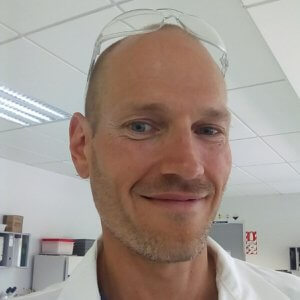Each semester the Research and Innovation Centre makes research grants available to EIT degree-teaching staff. Up to six grants, valued at a maximum of $6000, are available each semester.
Dr Chey Dearing, EIT School of Nursing and Health Science, Te Manga Kaupapa Mātauranga, Ahurea, Hauora, lecturer, was one of the successful applicants for semester two 2018, with a project researching the effects of exercise interventions, trace elements such as selenium, and heavy metals such as mercury in male fertility.
Chey teaches advanced pathophysiology to level eight nursing students; a course that utilises his skills, honed over many years; “with my background, it’s almost as though this course was made for me”. With a bachelor’s double major in medical biochemistry and medical microbiology, Chey worked in many general medicine laboratories both in New Zealand and in the UK. He was also “fortunate” to work in some highly specialised London laboratories including the neonatal metabolic screening unit at Great Ormond Street Hospital for Children, drugs of abuse screening at University College London, catecholamine’s and andrology at Imperial; College. After 10 years in the workforce, he was encouraged by staff at Imperial College London to do more study. The prospect of embarking on a programme of Master’s study was “terrifying”. Gaining his MSc with Distinction in Clinical Chemistry reinforced his love of learning.
In 2014, he was awarded his PhD in Andrology and Biostatistics. The focus of his “massive” thesis involved the cryopreservation of sperm from 4500 cancer patients. Patients were offered cryopreservation of sperm before treatment as insurance against permanent sterilisation from chemotherapy or radiotherapy. Study of sperm motion characteristics enabled the researchers to predict the mortality of cancer patients. “We are learning that male fertility may be a fundamental biomarker of overall male health and longevity”.
The next step may be to use this technology in animals with the focus on preservation of endangered species. Discussions with DOC are underway.

